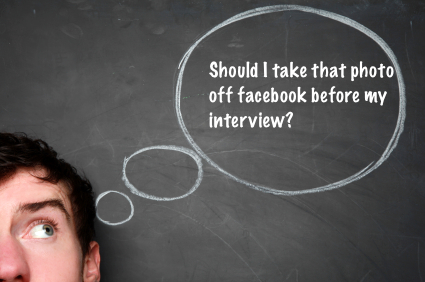There are many different opinions on using social media to screen candidates during the recruitment process. Does using the likes of Facebook and Twitter have its place in the screening process? Many of my clients are turning to social media channels to find out more about the candidates they are considering for their vacancy. Some are using it early on in the initial screening (before interviewing) and others are using it towards the end of the recruitment process as the last tick of the box. Many of the hiring managers I talk to tell me that they see social media screening as a useful tool in recruitment process; helping them to understand or get a feel for the candidate and who they really are.
Candidates on the other hand often have a different opinion. Many feel it’s not ethical, that social media channels such as Facebook and Twitter are personal forums and not relevant to how they are able to fulfil the requirements of a job and that what they do in their spare time has nothing to do with their professional lives. Others have the opinion that the internet and social media is a public forum and once you put that information out there it’s there for anyone to view and form opinions on.
I have had candidates tell me that during their job search period they have deleted their Facebook accounts so they can’t be screened out because of their social media profiles. This actually just makes me think what are you hiding and this is probably a bit extreme. In today’s world of technology often not having any social media footprint can be seen as a negative as social media plays a big role in many companies now. So how do you find a balance between having a social media profile that won’t go against you during a recruitment process and as an employer, if you choose to, how do you use social media as an effective screening and research tool?
Here’s my top tips for getting it right:
- Utilise the privacy settings available on the various social media channels so that you can control as much as possible what a potential employer can see. How far you go with the privacy settings is up to you as an individual and what you are comfortable with but also try and look at how you might be perceived by an employer. If in doubt tighten your settings.
- As with any research and screening tool used during a recruitment process I don’t think one sole tool can determine the decision to hire or not hire someone. For example if a candidate has interviewed exceptionally well, has the skills and experience to do the job, is the right fit for your teams culture but has had a poor reference check or has received poor results on skills testing, my advice to an employer would be to go back and dig a little deeper before ruling this candidate out. The same goes for social media screening. It should not be the sole factor for screening a candidate out of the recruitment process
- Don’t let your personal opinions impact the process, focus on your values. This goes for the candidate and potential employer. As the candidate you might disagree about employers using social media as a screening tool and making judgements on what they find. At the end of the day you can’t control it so you need to decide what you are comfortable displaying about you and finding an organisation that matches with your values. It’s a bit like people with tattoos. Some people are happy to keep them covered in the workplace if required. Others feel that the tattoos represent who they are and want to be able to display them. There is no right or wrong answer it’s about finding an organisation that fits with you, who you are and your values so you can be yourself in the workplace. As the employer it’s essential to remain focussed on assessing the candidate’s ability to do the job and fit with the organisation. While you may not agree with or share an interest in their hobbies or social activities, this should not cloud your judgement, unless of course it’s in conflict with the role, what the organisation stands for and could damage your company brand.
Whether we like it or not social media is here to stay and potential employers will do what they can to find out as much as possible about their next hire. We need to be mindful of the role and importance of social media and how it could be impacting you in finding another job or affecting the successful outcome of your next hire.
Do you agree with using social media as a screening tool for recruitment? Have you missed out on a job because of your social media profile? I’d love to hear about your experiences and opinions on this contentious issue.


